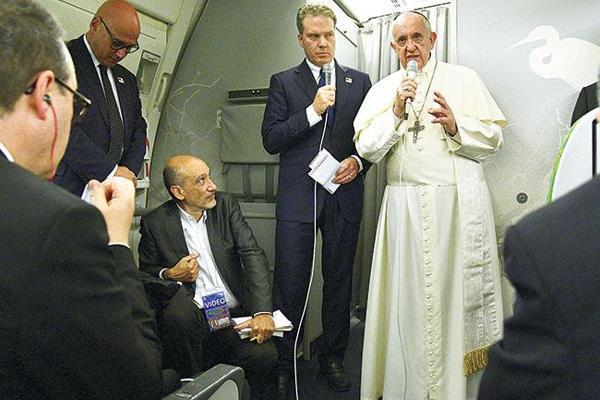Pope says his defense of Rohingya got through
ABOARD THE PAPAL PLANE - Reuters


Pope Francis on Dec. 2 defended his strategy of avoiding the term Rohingya in Myanmar, saying he believed he got his message across to both the civilian and military leadership without shutting down dialogue.
Speaking to reporters aboard the plane returning to Rome from Bangladesh, the pontiff also indicated that he had been firm with Myanmar’s military leaders in private meetings about the need for them to respect the rights of Rohingya refugees.
He also disclosed that he cried when he met a group of Rohingya refugees on Dec. 1 in Bangladesh, where he defended their rights by name in an emotional meeting.
“For me, the most important thing is that message gets through, to try to say things one step at a time and listen to the responses,” he said.
“I knew that if in the official speeches I would have used that word, they would have closed the door in our faces. But [in public] I described situations, rights, said that no one should be excluded, [the right to] citizenship, in order to allow myself to go further in the private meetings,” he said.
Francis did not use the word Rohingya in public while on the first leg of the trip in Myanmar. Predominantly Buddhist Myanmar does not recognize the mostly Muslim Rohingya as an ethnic group with its own identity but as illegal immigrants from Bangladesh.
Local Roman Catholic Church authorities had advised him not to say it because it could spark a backlash against Christians
and other minority groups.
The pope met Myanmar’s military leaders privately on Nov. 27, shortly after his arrival in the nation’s biggest city, Yangon.
“It was a good conversation and the truth was non-negotiable,” he said of his meeting with the military leaders.The latest exodus from Myanmar to Bangladesh of about 625,000 people followed a Myanmar military crackdown in response to
Rohingya militant attacks on an army base and police posts on Aug. 25.
Refugees have said scores of Rohingya villages were burnt to the ground, people were killed and women were raped. The military have denied accusations of ethnic cleansing by the United States and United Nations.
